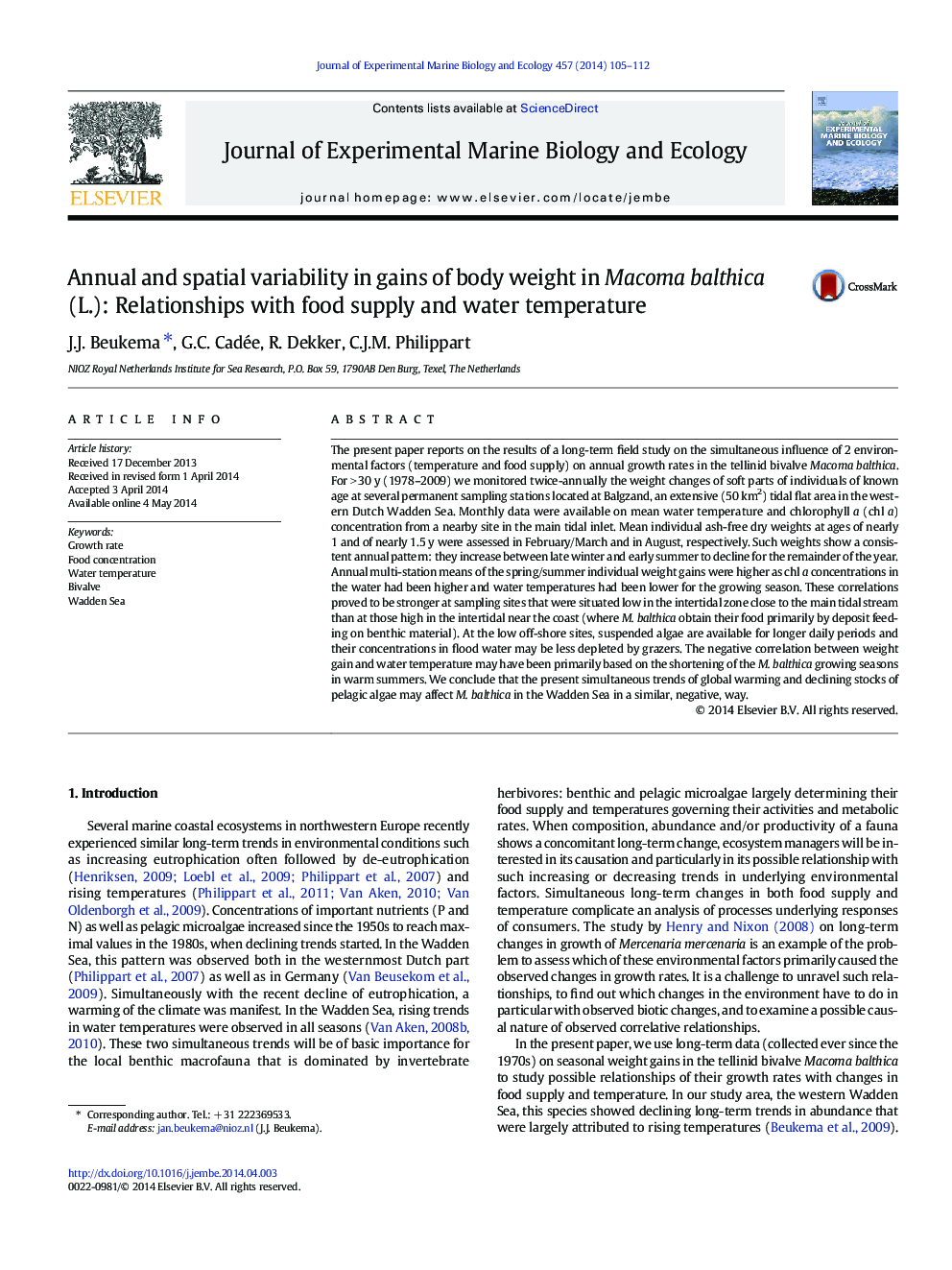| کد مقاله | کد نشریه | سال انتشار | مقاله انگلیسی | نسخه تمام متن |
|---|---|---|---|---|
| 6304199 | 1618418 | 2014 | 8 صفحه PDF | دانلود رایگان |
عنوان انگلیسی مقاله ISI
Annual and spatial variability in gains of body weight in Macoma balthica (L.): Relationships with food supply and water temperature
دانلود مقاله + سفارش ترجمه
دانلود مقاله ISI انگلیسی
رایگان برای ایرانیان
کلمات کلیدی
موضوعات مرتبط
علوم زیستی و بیوفناوری
علوم کشاورزی و بیولوژیک
علوم آبزیان
پیش نمایش صفحه اول مقاله

چکیده انگلیسی
The present paper reports on the results of a long-term field study on the simultaneous influence of 2 environmental factors (temperature and food supply) on annual growth rates in the tellinid bivalve Macoma balthica. For >Â 30Â y (1978-2009) we monitored twice-annually the weight changes of soft parts of individuals of known age at several permanent sampling stations located at Balgzand, an extensive (50Â km2) tidal flat area in the western Dutch Wadden Sea. Monthly data were available on mean water temperature and chlorophyll a (chl a) concentration from a nearby site in the main tidal inlet. Mean individual ash-free dry weights at ages of nearly 1 and of nearly 1.5Â y were assessed in February/March and in August, respectively. Such weights show a consistent annual pattern: they increase between late winter and early summer to decline for the remainder of the year. Annual multi-station means of the spring/summer individual weight gains were higher as chl a concentrations in the water had been higher and water temperatures had been lower for the growing season. These correlations proved to be stronger at sampling sites that were situated low in the intertidal zone close to the main tidal stream than at those high in the intertidal near the coast (where M. balthica obtain their food primarily by deposit feeding on benthic material). At the low off-shore sites, suspended algae are available for longer daily periods and their concentrations in flood water may be less depleted by grazers. The negative correlation between weight gain and water temperature may have been primarily based on the shortening of the M. balthica growing seasons in warm summers. We conclude that the present simultaneous trends of global warming and declining stocks of pelagic algae may affect M. balthica in the Wadden Sea in a similar, negative, way.
ناشر
Database: Elsevier - ScienceDirect (ساینس دایرکت)
Journal: Journal of Experimental Marine Biology and Ecology - Volume 457, August 2014, Pages 105-112
Journal: Journal of Experimental Marine Biology and Ecology - Volume 457, August 2014, Pages 105-112
نویسندگان
J.J. Beukema, G.C. Cadée, R. Dekker, C.J.M. Philippart,